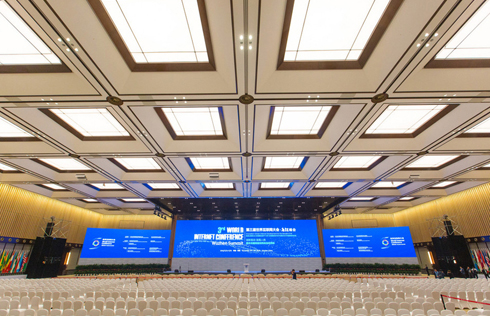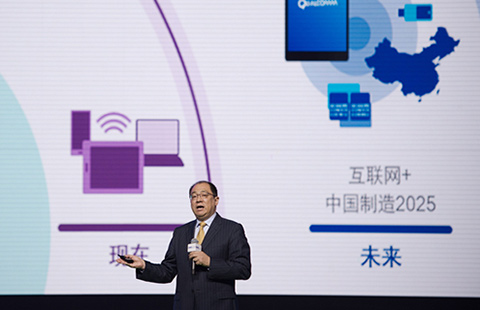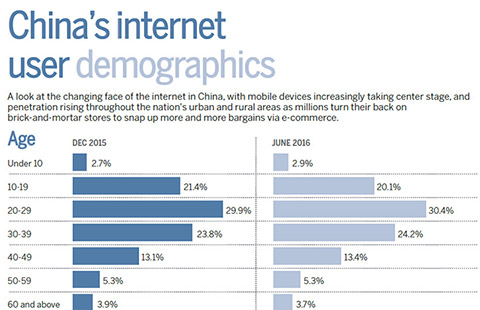Zhejiang gets nod for info economy zone
Zhejiang province has received approval to establish the country's first information economy demonstration area, a senior official said on Tuesday in Wuzhen, Zhejiang.
The Cyberspace Administration of China and the National Development and Reform Commission have okayed the establishment of the national level demonstration area in Zhejiang.
The two departments said in a joint statement that Zhejiang has achieved success in innovative development of the information economy.
The new area in Zhejiang should grasp the opportunity presented by the global technological revolution and industrial transformation, and make the supply-side structural reform its main task. The area should combine Zhejiang's advantages and competitiveness for the transformation and upgrading of the economic structure, the statement said.
Xu Kunlin, deputy secretary-general of the NDRC, read out the joint statement at a media conference in Wuzhen.
"The demonstration area should exploit the new system, novel mechanisms and models, to match the innovative development of the information economy," Xu said.
According to Xu, the demonstration area should promote Zhejiang as a leading tech hub and provide impetus to the Internet Plus strategy, big data industry, smart city development, cross-border e-commerce and sharing economy.
Wang Xiujun, vice-minister of the Cyberspace Administration of China, encouraged Zhejiang to deepen its experience in building information economy and share that experience with other areas and become the benchmark.
Over the past few years, the province has relentlessly implemented the vision of President Xi Jinping as articulated in his speeches on the development of the information economy, said Feng Fei, vice-governor of Zhejiang.
From January to September, online retail revenue of Zhejiang reached 633.56 billion yuan ($92.49 billion), up 34 percent year-on-year. More than 40 information-driven industrial bases and parks have been established across the province.
Zhejiang also tops in popular industrial robots, taking up 11 percent of the nation's total. In the past three years, these industrial robots saved on nearly 2 million low-end jobs and raised efficiency by 30 percent.
On Tuesday, the Ministry of Industry and Information Technology okayed the proposal to name Hangzhou as one of the national internet backbone access points. Before Hangzhou, 10 cities-Beijing, Shanghai, Guangzhou, Chengdu, Zhengzhou, Wuhan, Xi'an, Shenyang, Nanjing and Chongqing-h(huán)ave been chosen as access points.
The decision is based on a comprehensive evaluation of Hangzhou's location, its internet-related industry and network facilities.























